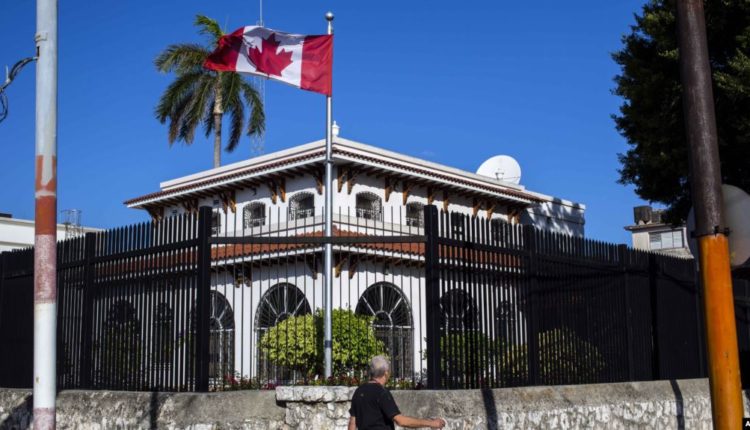
Canadian embassy in Cuba reinstates some services suspended over diplomat injuries
Michelle Zilio
Canada’s embassy in Cuba will reinstate some visa, passport and biometric services after a decision earlier this year to reduce staffing levels and programs in Havana over concerns about unexplained brain injuries sustained by diplomats and their families.
In a statement Monday, the Immigration Department said Cuban residents will again be able to pick up visas, drop off passports and get fingerprinting and photos required for applications at the Canadian embassy beginning on Thursday. The services were temporarily suspended after the government halved the number of Canadian staff to eight from 16 earlier this year.
Ottawa made the staffing and program changes in an effort to protect the health of Canadian diplomats, after more than a dozen staff and their families reported mysterious brain injuries while posted in Havana.
The diplomats have been diagnosed with “Havana syndrome,” which neurologists say is medically similar to a concussion, but without physical trauma. The cause of the symptoms, which include dizziness, nosebleeds, headache, nausea and confusion, has gone undetermined since American diplomats first experienced them in late 2016. A group of Canadian diplomats are now suing the federal government for $28-million, alleging Ottawa failed to properly address the injuries they sustained while representing Canada in Cuba.
The reduction of Canadian embassy services frustrated Cuban-Canadian families whose applications for immigration documents were forced into limbo in recent months.
In May, the government said Canada would no longer offer visitor visa, study- and work-permit services, and would stop conducting interviews to qualify for permanent residence in Canada at the Havana embassy. The services will only be partly restored this week when locally contracted employees take over some tasks, including the collection of biometrics, passport drop-off and visa pick-up.
“These services will facilitate the travel of Cubans to Canada and will make the process quicker, easier and less costly for applicants,” the Immigration Department said in a statement on its website.
However, there are no longer any Canadian immigration officials based in Havana, meaning some services cannot be provided in Cuba.
For instance, the Canadian embassy is not taking paper applications for visas, work or study permits in person, encouraging people to apply online instead.
Cuban applicants for permanent residency in Canada are also still required to travel outside of Cuba for medical exams and any possible interviews with Canadian officials. Applicants who require an interview will be given the choice to have their interview at the Canadian visa office in Port of Spain in Trinidad and Tobago, or Mexico City.
The Havana embassy will continue to accept all applications for a Canadian passport, proof of citizenship and permanent resident travel documents, but all open and active Cuban applications will be transferred to Canadian immigration officials in Mexico City for processing.
In the meantime, the Immigration Department says it will “continue to explore additional mitigation measures and alternative service channels to improve visa and immigration services offered to Cuban residents.”
(From The Globe and Mail)


